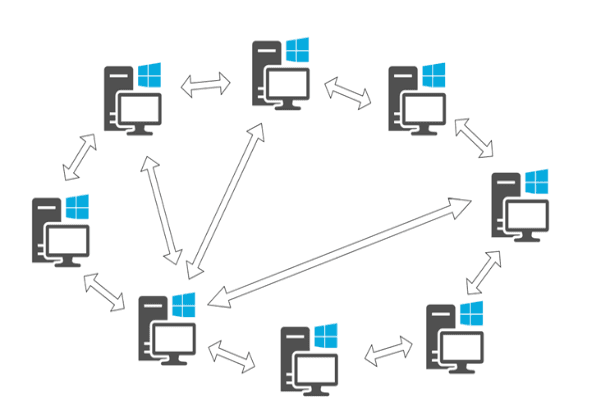Peer-to-Peer (P2P) computer systems have garnered a lot of attention in the tech world. The concept of P2P systems is simple yet revolutionary, relying on a network of individuals connected through their computer systems and sharing information as a community. With the use of P2P software, users in a network can easily exchange different forms of electronic files such as music, software, and video formats.
Each P2P software has its own set of features and operating instructions that enable users in the network to share files with ease. The network can range from a small group of individuals to millions of computer users. The software required to access P2P systems is generally available for free, though it may come with advertisements in return.
In a P2P system, each individual computer user acts as a peer and shares files equally. There is no central file server, giving users the freedom to share whatever files they want. The buzz about P2P computer systems highlights the way in which many computer users have embraced this aspect of the internet and connected with millions of other users. What once started as downloading a few songs from the internet has now grown into thousands of downloaded files on P2P systems, with the trend continuing to grow.
Magazines and online publications frequently report on the buzz about P2P computer systems, as it is a popular topic among computer users. The trend of sharing and exchanging information through P2P systems has taken the tech world by storm, with no end in sight to the amount of downloading of files.
P2P computer systems have become increasingly popular among computer users due to their ability to upload and download files from a network of users with the use of a P2P software program. These programs allow for a virtually anonymous sharing of files, making them highly appealing to users. However, the way the software is set up can also affect the smooth operation of the network. For example, allowing others to download files from your hard drive may result in a better download speed compared to limiting or prohibiting downloads.
The security of P2P computer systems is a concern among some users, as there is a risk of malicious files being uploaded to the network. Nevertheless, by taking simple precautions such as scanning downloaded files with a virus program, the risk of downloading a harmful file can be greatly reduced.
Moreover, the buzz about P2P computer systems also includes the impact it has on the entertainment industry. Music, software, and video files are commonly shared on these networks, raising questions about copyright infringement and the legality of such sharing.
However, this does not diminish the popularity of P2P systems, as the ease of access and anonymous sharing still make it a sought-after method of file exchange among computer users.
The buzz about P2P computer systems continues to grow, as users find new and innovative ways to utilize this type of network. Whether for personal use or for business purposes, P2P systems have proven to be a valuable resource for the exchange of information and files.

